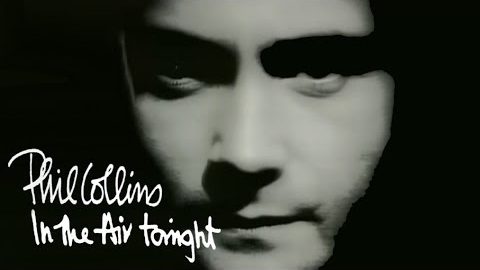
In the first part of the 1980s, life was not well for Genesis drummer Phil Collins.

Genesis, 1971. Members: Tony Banks, Phil Collins , Mike Rutherford, Anthony Phillips and Peter Gabriel
Hired as the drummer for Genesis in 1970, at age 19, Phil Collins assumed the role of lead singer for Genesis in 1975, following the departure of Peter Gabriel.
Where the music critics of the day loved Gabriel, the Brit award-winning progressive, singer-songwriter and his extended length prog-rock jams, as well as Gabriel’s all around genius musicianship, influential music critics were less than thrilled with the contribution made by Phil Collins after Gabriel’s departure.
Collins’ career went from bad to worse after he became Genesis’ lead singer, but it was in the pain of the break-up with his Canadian-born wife Andrea Bertorelli — who returned to her home in Vancouver in 1979 with their two children, Joely and Simon Collins — that provided the therapeutic impetus for the creation of Face Value, a break-up-and-divorce album the likes of which had never been heard.
Finding inspiration in the pain caused by his divorce, and craving artistic independence after years of collaboration, hiding away in the studio, Collins produced Face Value himself, playing keyboards and drums, and despite vehement opposition by his manager, Collins called in Earth, Wind & Fire who provided the horns and back up vocals necessary to fill out the songs Collins heard in his head.
The rest is rock ‘n roll history.
With the release of Face Value, Collins went on to become a massive star, Face Value topping the charts across the globe for 16 consecutive weeks, going on to become the top-selling album of 1981, in the process winning Collins a raft of awards, including the Grammy for Best Rock Album of 1981, Song of the Year for In the Air Tonight, and Best Male Pop Vocalist at the 1981 Grammy’s show that year.
Kicking off with the bitter anthem In the Air Tonight, rightly considered one of the great heartbreak songs of all time, the album alternates between moody ballads and bouncily soulful tracks that try to put a smile on the pain.
On the quieter songs like If Leaving Me Is Easy, Collins’ wracked vocals leave no doubt that he’s not sugarcoating his emotional devastation as he sorts through the wreckage of his life.
The impossibly hooky I Missed Again, meanwhile, displayed Collins’ skills as a hitmaker and vocalist.
The gently sung, sweet-as-punch This Must Be Love, which was written post-divorce about a new love, also gives an early respite after the lurching, bruising In the Air Tonight. This range of sound and emotion is part of what helped the album to succeed as much as it did, as did the feeling that Collins felt driven to make this album to help him heal.
Face Value was not a career move or a cash grab, but rather the album was a transmission from a wounded soul delivered with a soft touch and sensitivity.
As such, Face Value is Collins’ most honest, most compelling work.
Face Value stands as Collins’ masterpiece, one of the finest moments of the ’80s musical landscape, and one of the best début albums of the past 60 years.
